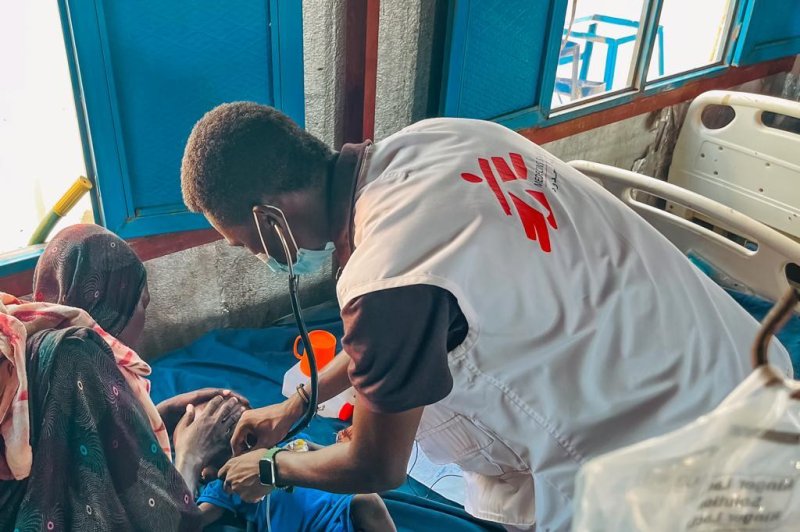1/3

Doctors Without Borders Sudan said it has treated 223 children that were suspected to have measles between June 6 and June 27. More children are being received in two treatment centers every day. Photo courtesy of Doctors Without Borders Sudan/
TwitterJuly 2 (UPI) — A church leader in South Sudan is calling on the nation’s Catholic dioceses to establish aid and emergency centers for refugees amid a bloody civil war.
The United Nations High Commissioner for Refugees estimates that 2.5 million people have been pushed from their homes by the violence in Sudan.
About 560,000 have sought refuge in neighboring countries, including more than 100,000 in South Sudan, the Vatican News reported. Vatican News is the state news agency operated by the Holy See.
Archbishop Stephen Ameyu Martin Mula of Juba has asked dioceses across South Sudan to assist refugees and people returning home by establishing emergency centers. He applauded the churches and non-government organizations for what they have done so far.
“It is not easy but you are managing it. The humanitarian situation in South Sudan has not peaked but is accelerating,” he said, according to the Catholic Radio Network. “I encourage you to continue to help in the emergency we have.”
Sudan has been in the grips of a violent conflict since April 15 with a struggle for control between the Sudanese Armed Forces, supporting President Gen. Abdel Fattah al-Burhan, and the Rapid Support Forces — a splinter faction.
Meanwhile, displacement camps in the state of White Nile, Sudan, are experiencing what is believed to be a measles outbreak that has killed at least 13 children.
Doctors Without Borders Sudan tweeted Sunday that measles and malnutrition in children are among the most urgent health problems facing White Nile camps.
“Nine camps are hosting hundreds of thousands, mainly women and children. The situation is critical,” the organization tweeted.
The organization said it has treated 223 children that were suspected to have measles between June 6 and June 27. More children are being received in two treatment centers every day.
Sudan and South Sudan have been underserved through humanitarian aid as a result of the conflict and a lack of funding support, leaving many adults and children hungry and without health services.
“People are dying while the country’s health system buckles under the weight of overwhelming needs,” Jean Nicolas Armstrong Dangelser, Doctors Without Borders emergency coordinator in Sudan, said in a statement.
“By subjecting people to shocking levels of violence, or by restricting medical organizations from helping them, the warring parties in Sudan are showing a complete disregard for civilian lives.”

